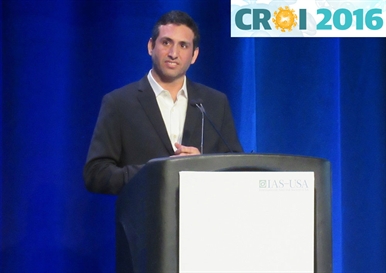
An injectable antiretroviral therapy (ART) consisting of two drugs (cabotegravir and rilpivirine) administered every four or eight weeks may be as effective as a daily oral dose of the drugs in maintaining viral suppression in patients with HIV, according to a new phase 2 trial published in The Lancet.
In the study, patients were given injectable ART as a maintenance therapy over 96 weeks once they had achieved viral suppression after 20 weeks of daily oral medication.
In Uganda many patients have complained of not being comfortable in swallowing the ARV drugs with some reports indicating some patients abandon treatment along the way.
However, reports suggest that the potential for a long-acting injectable ART could ease the burden faced by people living with HIV of having to take daily oral medication lifelong to manage the disease. Phase 3 trials are ongoing and are needed to confirm the results, and further trials will be needed in wider groups of patients to generalise the findings.
The trial is presented at the International AIDS Society meeting in Paris, France.
An estimated 36.7 million people worldwide are living with HIV, and advances in ART have led to improved survival and quality of life for people with HIV. However, current treatment requires taking a daily dose of medication lifelong, and poor compliance can result in treatment failure or the emergence of drug-resistant mutations. Long-acting injectable drugs potentially offer a more convenient way of managing the disease.
“Adherence to medication remains an important challenge in HIV treatment. Long-acting injectable ART could provide some patients with a more convenient approach to manage HIV infection that avoids daily oral dosing, and the need to keep, store, and transport medications as they go about their daily lives,” explains author of the LATTE-2 study Dr David Margolis, ViiV Healthcare, USA.
“The introduction of single tablet medication represented a leap forward in ART dosing, and long-acting antiretroviral injections may represent the next revolution in HIV therapy by providing an option that circumvents the burden of daily dosing. The results through to 96 weeks with this two-drug regimen are encouraging, and we now need further research, including the ongoing phase 3 trial, to confirm these findings,” Dr Margolis adds.

According to the report, the trial began with an induction phase in order to identify any potential adverse events to the drugs before administering a long-acting injectable. 309 participants were included in the initial induction phase of the trial, during which they were given daily oral doses of cabotegravir (30mg) and abacavir-lamivudine (600mg-300mg) over 20 weeks.
The majority of participants tolerated the drugs and reached viral suppression (plasma HIV-1 RNA less than 50 copies per mL) and was therefore eligible to enter the maintenance phase.
286 participants were included in the maintenance phase, where they were randomly assigned to receive injectable cabotegravir plus rilpivirine at 4-week intervals (115 patients), at 8-week intervals (115 patients) or continue on the daily oral dose of cabotegravir and abacavir-lamivudine (56 patients).
32 weeks after randomisation, viral suppression was maintained in 91% (51/56) of patients in the oral medication group, 94% (108/115) in the 4-week group, and 95% (109/115) in the 8-week group.
At 96 weeks, viral suppression was maintained in 84% (47/56) of patients in the oral medication group, 87% (100/115) in the 4-week group, and 94% (108/115) in the 8-week group.
Pain at the site of the injection was the most commonly reported adverse event (97% of patients in the 4-week group, and 96% in the 8-week group). Most reactions were mild or moderate and lasted an average of 3 days. In total, 2 of 230 (<1%) patients receiving the injectable two-drug regimen discontinued due to injection intolerance.
Other adverse events reported included nasopharyngitis, diarrhoea, and headache, and rates were similar in all three groups. A total of 11 patients (4%) developed an adverse event during the maintenance phase which led to withdrawal from the study: 8 patients (7%) in the 4-week group, two (2%) in the 8-week group, and one (2%) in the oral treatment group. Two deaths occurred during the study: one from a motor vehicle accident, and the other following an epileptic seizure which was not thought to be due to the treatment.
The trial was done at 50 sites in the USA, Germany, Canada, Spain, France and Germany. Although it included patients from five countries, most (91%) of the participants were male. Also, participants were only eligible for the trial if they had a CD4+ cell count of at least 200 cells per mm3, which does not necessarily represent the global population living with HIV. Further research in more diverse groups of patients is now needed.
Professor Joe Eron, University of North Carolina at Chapel Hill, USA, author of the study, says: “The results of LATTE-2 show that a long-acting injectable antiretroviral regimen has the potential to be both highly effective and well tolerated over a long period of time. These data provide a strong foundation for the ongoing and planned phase 3 trials which will hopefully lead to an effective, well tolerated alternative to daily antiretroviral therapy.”
Writing in a linked Comment, Professor Mark A. Boyd, University of Adelaide, Adelaide, Australia, and Professor David A. Cooper from the Kirby Institute, University of New South Wales, Sydney, Australia, say:
“While injectable ART might be attractive for some or perhaps many people living with HIV (….), there will inevitably be a trade-off between the convenience of not having to adhere to oral therapy and the inconvenience and discomfort associated with injectable long-acting ART. It is possible that injectable ART will be more attractive the less one must be injected. This is particularly the case in the current era when oral therapy is administered as one pill, once daily, and (at least in Australia) people living with HIV can be dispensed anywhere from 2 to 6 months’ supply of ART at a time. This scenario, compared with having to seek health care to be injected on a monthly basis, might make the injectable option seem less convenient than conventional oral therapy for some people. This is compounded by the fact that health-care systems are generally not configured to facilitate regular, recurrent injections in a timely and convenient way to people who are well. Changing this will take innovation, political will, and time.”















